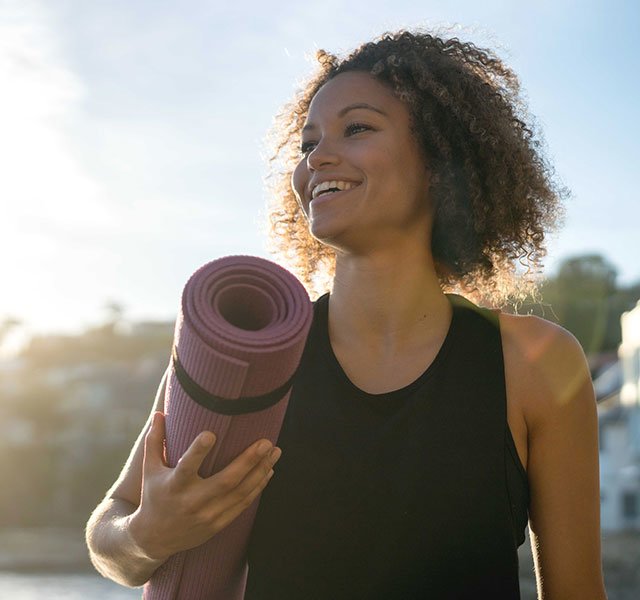When is the best time to exercise? Eat your biggest meal? Wind down for bed? The answers to those questions rest largely on you, according to Nessreen Rizvi, M.D., an internal medicine specialist at Henry Ford Health.
The Optimal Time for Healthy Daily Activities
Physicians, dietitians and health and wellness bloggers all love to share advice on the best time for daily activities. Some tips are so well known, they’re reflected in our everyday language (“early to bed, early to rise; an apple a day keeps the doctor away, etc.) But are these commonly held beliefs backed by science? Not necessarily.
Here’s Dr. Rizvi’s insight about the best times to … :
Work out: Some experts say morning workouts are best because you get exercise out of the way. Others say you should reserve workouts until later in the day. Dr. Rizvi’s advice: Learn what feels right for you. Starting your day with exercise can have a domino effect, leading you to engage in healthier activities all day long. “But, if you’re not a morning person, trying to work out as soon as you roll out of bed may not be the best idea,” she says.
The best time: The best time to exercise is when you know you’ll do it — and when you can be consistent. Once your body and brain adjust to exercising at a particular time of day, it will be easier to stick with the routine.
Eat meals: Fitness and nutrition experts used to recommend eating within two hours of waking up. Many also suggested making breakfast your biggest meal. Research does indicate that eating a larger breakfast and keeping lunch and dinner on the lighter side can help keep blood sugar levels steady and reduce your risk of developing diabetes. Despite these recommendations, though, some people find restricting eating to a specific 8- or 10-hour window, also called intermittent fasting, helps them keep calories in check and feel more energized. With this type of plan, you might wake up at 6 a.m. and have your first meal at noon.
The best time: “There’s research to support both approaches,” says Dr. Rizvi. “Ultimately, you have to figure out which eating pattern works best for you.”
Go to bed: According to the National Sleep Foundation, healthy adults should get between 7 and 9 hours of sleep each night and most of us are falling short. While there’s no strict time that’s best to turn in, Dr. Rizvi emphasizes the importance of going to bed at an hour that allows you to squeeze in at least 7 hours of shut-eye.
The best time: Your preferred bedtime will likely change throughout your life. Young adults and teens, for example, are physiologically wired to go to bed later and wake up later than middle-aged or elderly people.
Shut down devices: In today’s world, it’s not uncommon to be attached to a smartphone or other device all day long. Unfortunately, being connected 24/7 ups your odds of developing anxiety, depression and “tech neck.” It can also interfere with sleep and lead to distracted driving.
The best time: If you can restrict your smartphone use to set times, you may discover you’re both calmer and more productive. Try setting your phone in airplane mode for a few hours each day. And set a bedtime for your devices each night, ideally one or two hours before your bedtime.
Meditate: There are solid arguments for meditating both morning and night. But if you have a jam-packed schedule, choosing just one 10- to 15-minute block during the day to meditate can work wonders on your psyche. Some people like to meditate before they get out of bed to set an intention that helps the day run more smoothly. Others prefer to meditate just before they turn in to relax their minds and release tension and worries.
The best time: When it fits into your schedule.
The Best Time for You
While you might hear about the benefits of working out in the morning, hitting the sack early and indulging in your biggest meal within an hour or two of waking, there’s little research to support set times for different activities.
“Every person is different, so what works for one person doesn’t necessarily work for another,” says Dr. Rizvi, citing people who work midnight shifts, those who have young children and those who are caregivers for loved ones.
The best time to do anything, whether working out or taking a shower, is when it feels best for your body.
To find a doctor or therapist at Henry Ford, visit henryford.com or call 1-800-HENRYFORD (436-7936).
Dr. Nessreen Rizvi is an internal medicine physician, seeing patients at Henry Ford Medical Center – Columbus in Novi.



